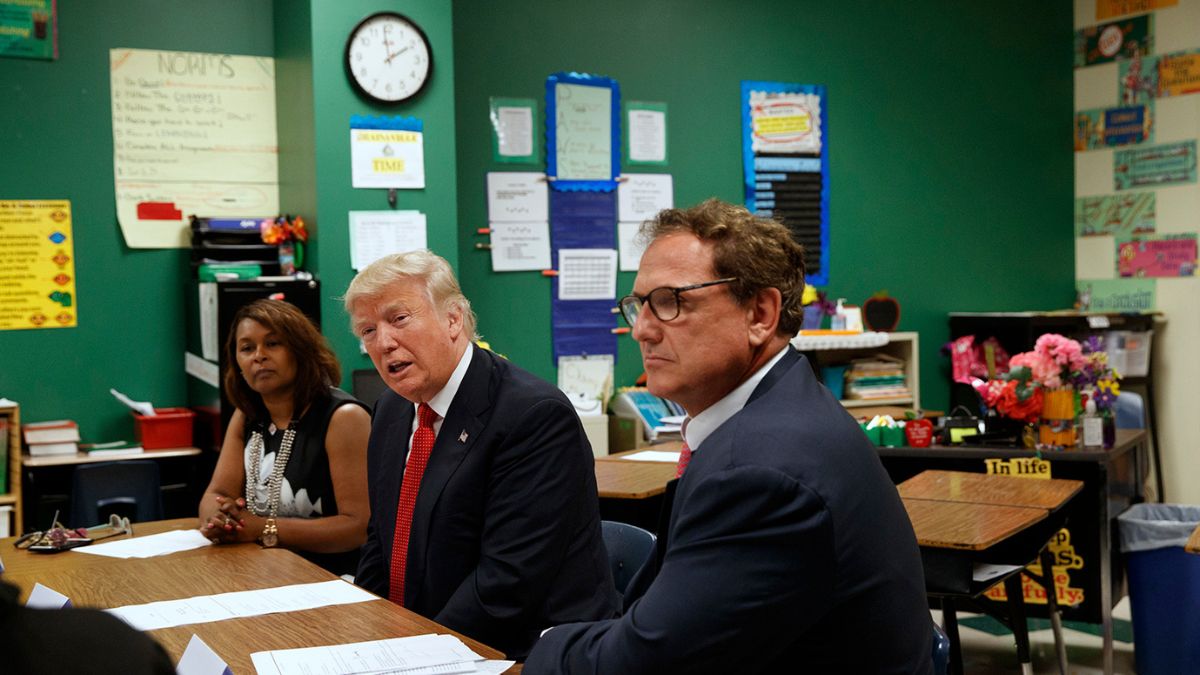Donald J. Trump is a name that resonates globally. While many know him as the 45th President of the United States, a business mogul, and a television personality, his academic trajectory is often less scrutinized. Understanding his educational foundation sheds light on how it shaped his business acumen, decision-making, and leadership approach. This blog dives into Donald Trump’s education, examining his schooling, college years, and its impact on his career.
What We Know About Donald Trump’s Early Education
Donald Trump’s formal education began in New York City, where he attended the Kew-Forest School in Forest Hills, Queens. However, his tenure at Kew-Forest was cut short in high school, following concerns about his disruptive behavior. This led his parents to transfer him to the New York Military Academy (NYMA) at the age of 13.
The New York Military Academy Experience
Founded in 1889, NYMA was known for combining rigorous academic coursework with strict military discipline. Here, Trump’s education was intertwined with military-style lessons emphasizing leadership, responsibility, and resilience.
While at NYMA, Trump succeeded both academically and socially. He rose to become a star athlete, excelling in sports such as baseball and soccer, and gained leadership roles, including being appointed the captain of the cadet corps during his senior year.
The structured, disciplined environment of NYMA likely instilled traits in Trump that would later inform his aggressive negotiating strategies and business leadership. It provided a foundation not only in academics but also in organizational discipline and competitive spirit.
Higher Education at Fordham University and the University of Pennsylvania
After graduating from the New York Military Academy in 1964, Donald Trump pursued higher education. His collegiate career spanned two institutions:
-
Fordham University
Initially, Trump attended Fordham University, a Jesuit institution in the Bronx, for two years (1964–1966). Fordham gave Trump a broad liberal arts education; however, details about his academic performance or major during this time remain vague.
-
The Wharton School of the University of Pennsylvania
Trump transferred to the Wharton School at the University of Pennsylvania for his remaining two years, graduating in 1968 with a Bachelor of Science degree in economics. The Wharton School is renowned for its focus on finance, business analytics, and management, often ranked as one of the world’s top business schools.
Why Wharton?
Wharton’s reputation certainly lends credibility to Trump’s financial expertise. Interestingly, it has been noted that during Trump’s time, Wharton’s undergraduate business program wasn’t as competitive or selective as it is today. Nonetheless, graduating from a prestigious institution like Wharton added significant weight to Trump’s resume at an early stage.
At Wharton, Trump reportedly focused on real estate and finance. This provided him with technical knowledge and practical tools he would later apply to build the sprawling Trump Organization empire.
How Education Played a Role in Trump’s Career
Donald Trump’s education did not merely end with a degree—it acted as a springboard for his ambitions. Here’s a closer look at how his academic background supported key components of his life:
1. Building a Real Estate Empire
The fundamentals of economics and finance learned at Wharton undoubtedly contributed to Trump’s ability to analyze complex financial deals, make investment decisions, and understand market trends. His focus on real estate—an asset class requiring keen financial insight—showcases the practical application of his education.
2. Crafting a Public Persona
Though not directly tied to academics, Trump’s disciplined background at NYMA and exposure to higher education helped him shape a confident, authoritative public personality. His ability to present himself as a successful businessman stems partly from the credibility he gained through his alma mater.
3. Making Business Decisions
Trump’s early exposure to military discipline at NYMA and strategic thinking at Wharton appears to influence his unconventional decision-making style. Though his decisions have been polarizing, his reliance on competitive instincts, time management, and financial calculation stems from his foundational education.
The Criticisms and Clarifications Around Trump’s Educational Journey
It is essential to acknowledge the controversies surrounding Trump’s educational claims. Some critics have questioned the extent of his academic achievements, with Trump himself referencing Wharton as “the hardest school to get into.” However, during his time there, admissions were less rigorous than they are currently.
Although some have scrutinized his academic background, what remains clear is that Trump leveraged his education to build successful ventures and establish himself as a prominent figure in real estate and beyond.
The Takeaway for Business Professionals
Trump’s educational path offers key insights applicable to entrepreneurs and professionals:
- Leverage Specialized Education: Whether it’s economics, finance, or real estate, focused learning provides technical knowledge needed for career growth.
- Adapt and Innovate: Trump’s time at Wharton allowed him to think creatively within the world of business, seizing opportunities others overlooked.
- Leadership is Learned and Practiced: From NYMA’s cadet captain to a presidential role, leadership is an invaluable skill built through education and experience.
- Education is More Than Grades: Academic institutions provide frameworks and networks, but personal ambition drives success.
FAQs
1. Did Donald Trump’s education directly influence his career in business?
Yes, Trump’s education, particularly his time at Wharton, provided him with a strong foundation in economics and real estate principles that he later applied to his business ventures. However, his ambition and ability to leverage opportunities played an equally significant role.
2. What is the significance of Trump attending Wharton?
The Wharton School is frequently regarded as one of the top business schools in the world. Attending this institution gave Trump access to high-level coursework, a prestigious network, and the credibility associated with such a renowned school.
3. Does formal education guarantee success in business?
No, while formal education equips individuals with technical skills and knowledge, success in business often relies on factors like creativity, perseverance, strategic thinking, and the ability to adapt to changing circumstances.
4. Can leadership skills like Trump’s be developed at educational institutions?
Yes, institutions like NYMA and Wharton emphasize discipline, responsibility, and leadership development. Structured environments can help build essential leadership skills, but active practice and real-world application are crucial for mastery.
5. What lessons can entrepreneurs learn from Trump’s educational path?
Entrepreneurs can learn to value specialized education, focus on networking, cultivate leadership capabilities, and prioritize personal drive and ingenuity alongside their formal studies to achieve success.










